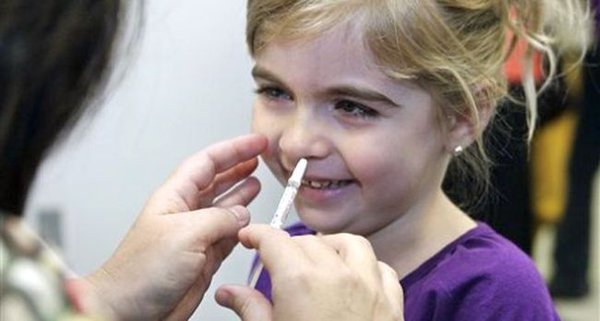Team from Coimbra develops Nasal Spray against Hepatitis B
Researchers from the Neuroscience and Cell Biology Center (CNC) and the Faculty of Pharmacy, University of Coimbra (UC) in Portugal developed a vaccine for hepatitis B in the form of a nasal spray.

The genetic vaccine designed is advantageous for developing countries where there is a scarcity of health professionals, responsible for the administration of injectable vaccines. The nasal route allows one to reduce the high human and financial costs of these countries, associated with complications arising from the administration of injection, particularly infections caused by the reuse of syringes.
New transportation systems created
Olga Borges, coordinator of the project published in the journal "Molecular Pharmaceutics," explains that transportation systems (polymeric nanoparticles) capable of carrying therapeutic molecules from the nasal mucosa to the interior of cells were created. "The results obtained in mice have shown that the developed formulation is effective intranasally. "
The work developed a new composition for vaccine based on "plasmids", which are theoretically more resistant to temperature changes than the "antigen" (immune stimulators) of the vaccines currently marketed.
Vaccine based upon Plasmids
Plasmids are small, circular molecules that transmit genetic information (DNA) into the cells by activating the body's defense mechanisms to fight the hepatitis B virus the "fighters" are called "antibodies" and appear in the blood, nasal and vaginal mucosa.
"The nanoparticles which are developed may also be used in the composition of vaccines that prevent sexually transmitted diseases, because they induce the production of antibodies by the body at the level of the vaginal mucosa more effectively than injectable vaccines," explains the also professor at the Faculty of Pharmacy, University of Coimbra.
The project, which had the collaboration of the University of Geneva, is part of a line of research on vaccines started in 2003, the nanoparticles being developed over four years by Filipa Lebre, PhD student of the Faculty of Pharmacy at UC.
Article Link:
Coimbra, August 29, 2016
Cristina Pinto
University of Coimbra
Translated by Olga Santos
Portuguese version
Pravda.Ru
Coimbra
Subscribe to Pravda.Ru Telegram channel, Facebook, RSS!


